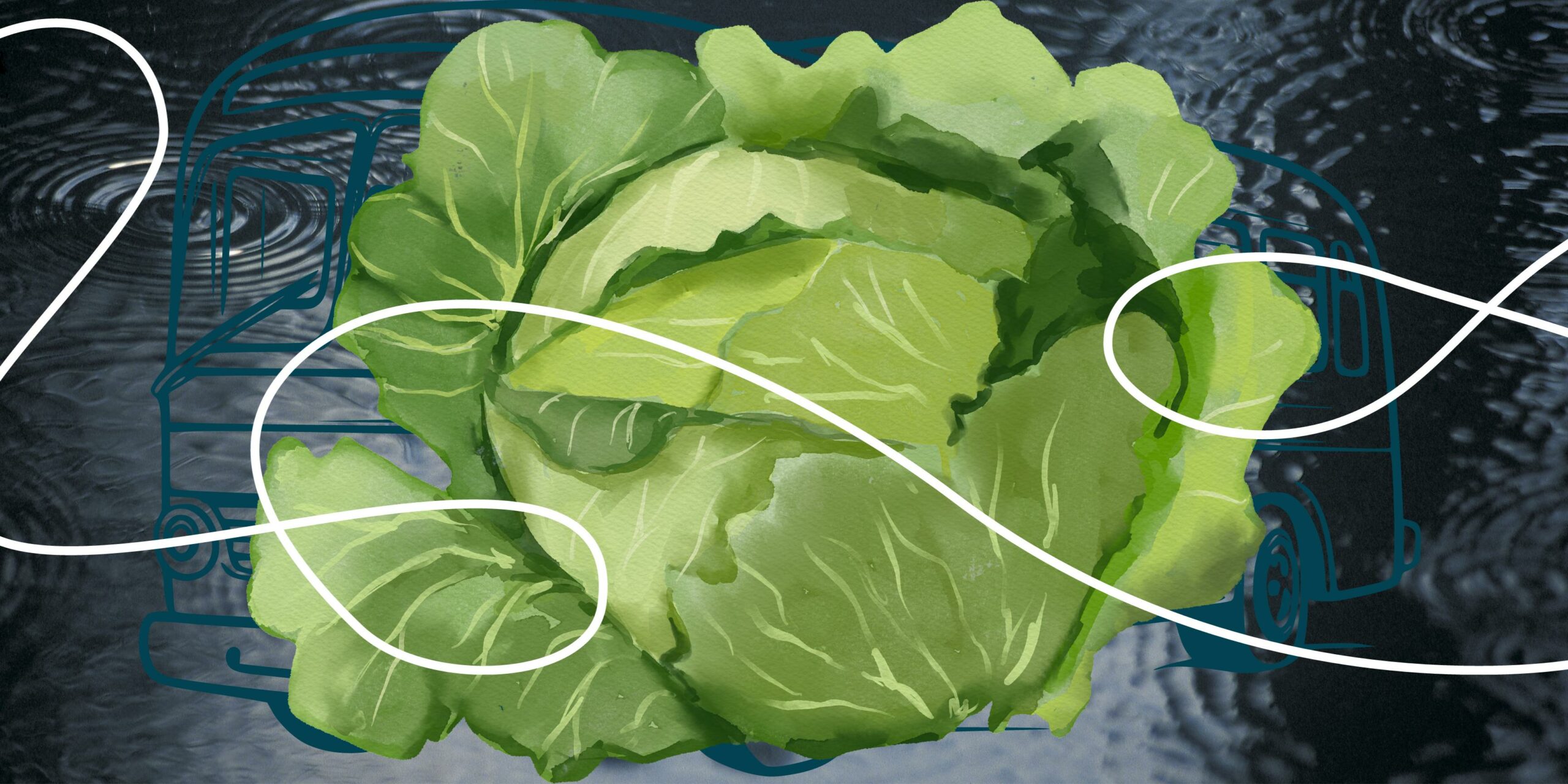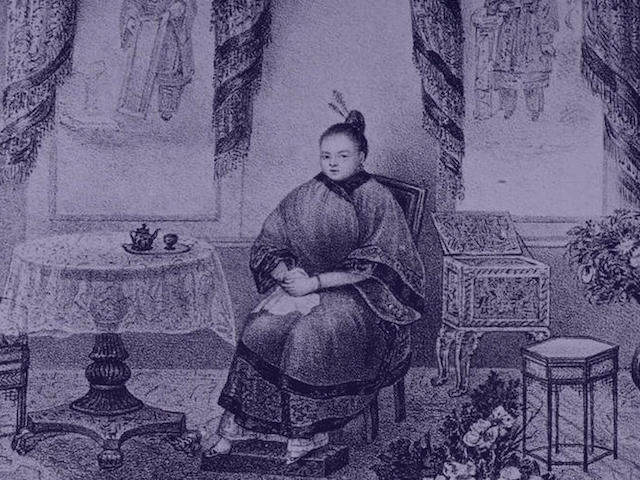Mei had been in jail for six months and a handful of days.

October 6, 2023
When my grandmother was eighty years old, she was deeply unhappy. She had lived through a Communist Revolution, and she was tired of eating cabbage. My grandfather loved her with all his heart and cooked for her daily, but cabbage was a staple of his dishes. He loved to steam the cabbage and use it to wrap a filling of wood ear mushrooms and glutinous rice, which gave a nutty and aromatic flavor. Or he would stir-fry it with rice to make cabbage fried rice. He was quite creative with his cabbage. She called me almost daily to complain.
“The old man is trying to kill me with cabbage,” she said. “How is Mei? Is she coming home? Will you cook her something good?”
I was a cook, but I lived in Los Angeles, so it wasn’t like I could cook my grandmother something hot and serve it to her. She still lived in Shanghai, in the “old country.” I wanted to make her stuffed bean curd with braised pork and spicy Thai chilies; one of my favorite winter dishes. But I couldn’t. China had been closed to foreigners for almost two years in the aftermath of COVID-19, and with my American passport, I wasn’t going anywhere near their little apartment on Guangdong Lu.
It was winter in Los Angeles, which meant almost nothing, except for the brief rainy season in January, when it seemed to pour for about five weeks straight.
“Mei is good,” I lied. “She’ll be home for Christmas.”
It was an elaborate lie. Mei had been in jail for six months and a handful of days. She couldn’t stop shoplifting, so after multiple probations and multiple bouts of community service, they finally just locked her up. She would not be home for Christmas, although she would likely be home for Chinese New Year with the way things were going.
Every day, I cooked something for my sister and brought it to her. They never let me bring it in, but it was the thought that counted—and afterward, I left the food at the Buddhist altar and burned some incense for my dead grandfather—my other grandfather, my father’s father.
In fact, this was how I met Miguel.
Miguel lived in the apartment directly above mine. He was friends with my neighbor from across the hall, and they would often be found kiki’ing it up outside of #9 (I was #7). One day, my neighbor across the hall asked me, “Where do you go all the time with all that food?”
It was a Thursday, and I was carrying beef stew, made with coconut milk and Madras curry powder.
“I bring it to my sister,” I said. I paused. “She’s sick.”
“Oh, I’m sorry,” he said. He said it so sincerely that I stopped and stared at the two of them, tattooed from head to toe, standing outside #9.
“Actually, she’s in jail,” I said, shrugging. “I don’t know why I lied. She’s been in jail for months.”
“Aww, no!” He laughed, and Miguel did too. I explained to them that they never let me bring the food inside, so I always left it at a Buddhist temple and lit the incense for my Ye Ye.
“Oh, you can give it to me,” Miguel said immediately. “I’ll eat it.” He put his number in my phone, and I told him that if they didn’t let me bring it in that day, I would bring it to his apartment.
“#23,” he said, with a wink.
How this story ends: I sleep with Miguel, and we start a long relationship of seven years. We move to Illinois for me to get my degree in food anthropology, and he starts working as a chef at an Indian buffet. Mei comes out of jail, spends three months with our mother, and then is back to her old ways of shoplifting. This time, though, they don’t arrest her. When I find out what they did to her in the back alleyways of a Chinatown shopping plaza, I move back to Los Angeles, and Miguel promises he will “take care of it.” My grandmother passes away. Miguel and I drift apart, and my sister goes to work at a gift shop.
How this story really ends: I take my beef stew on the bus, and I plug in my earphones. I listen to Chinese music and pretend I am back in the “old country.” I feel the warmth of the beef stew in my hands. I miss my grandmother, but the only memory I have of her is over thirty years old. I think about the smell of cabbage cooking and make a mental note to buy a napa on my way home from the Buddhist temple. I want to cook steamed pork buns, the kind that burst with hot soup when you bite into them.



